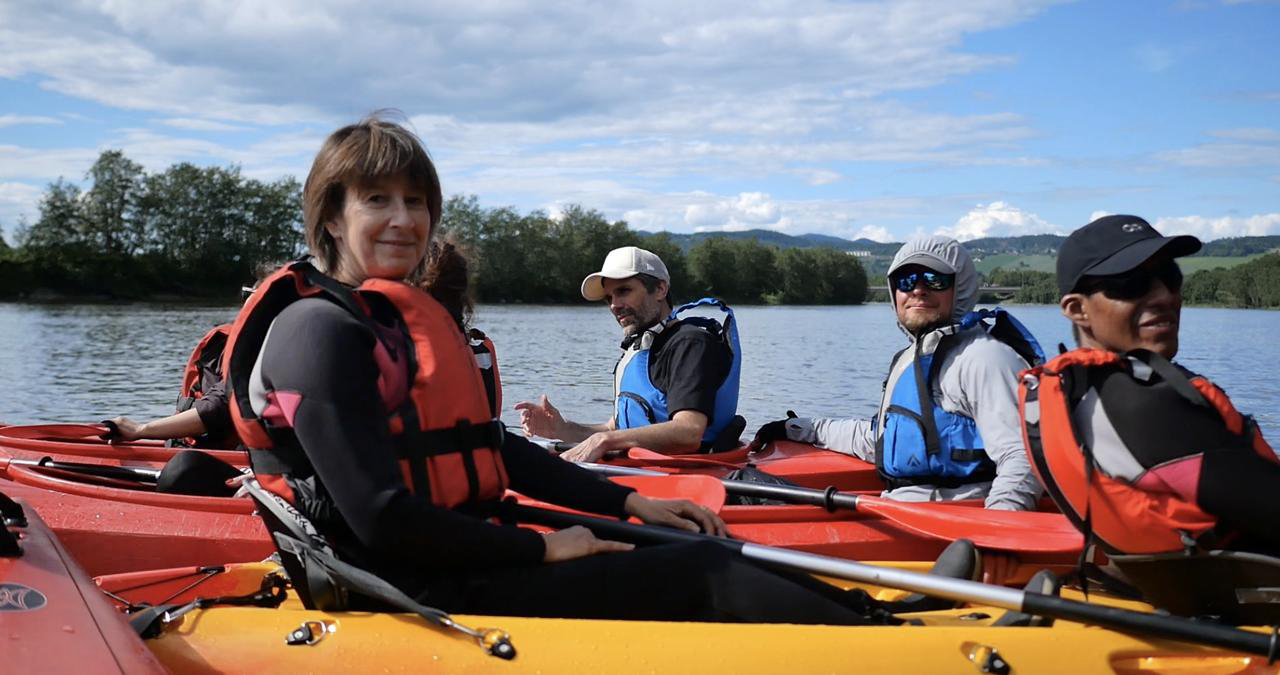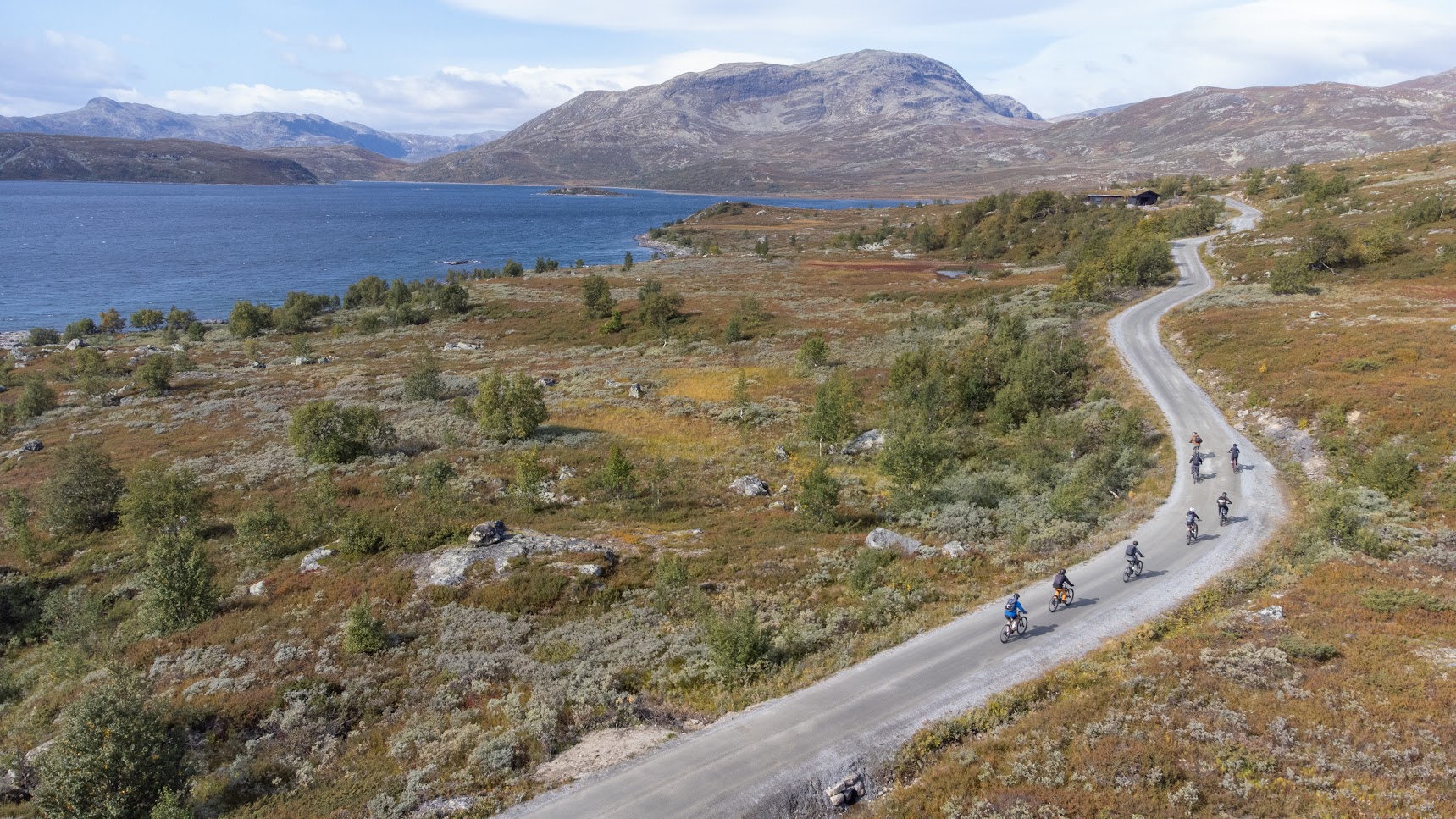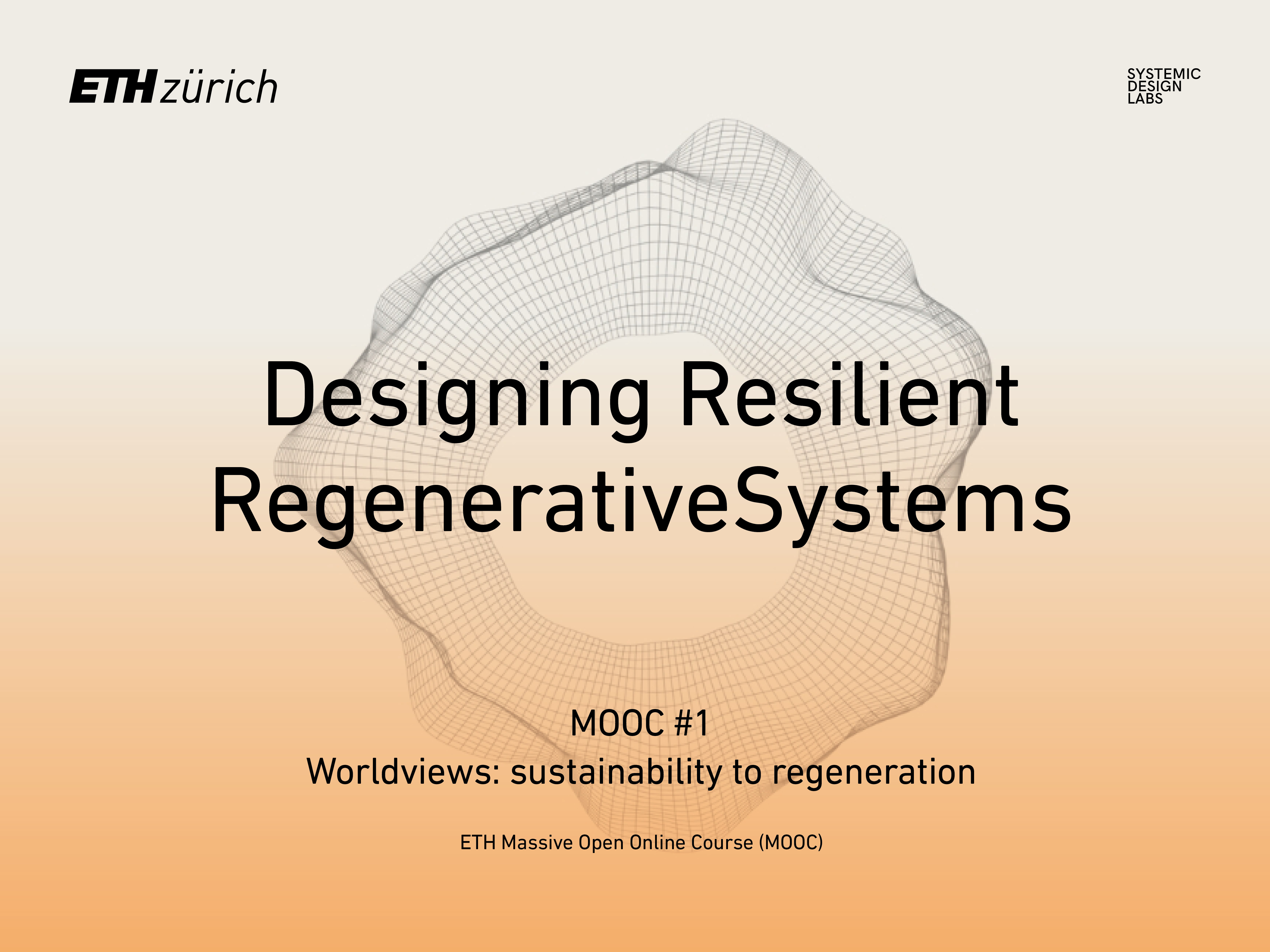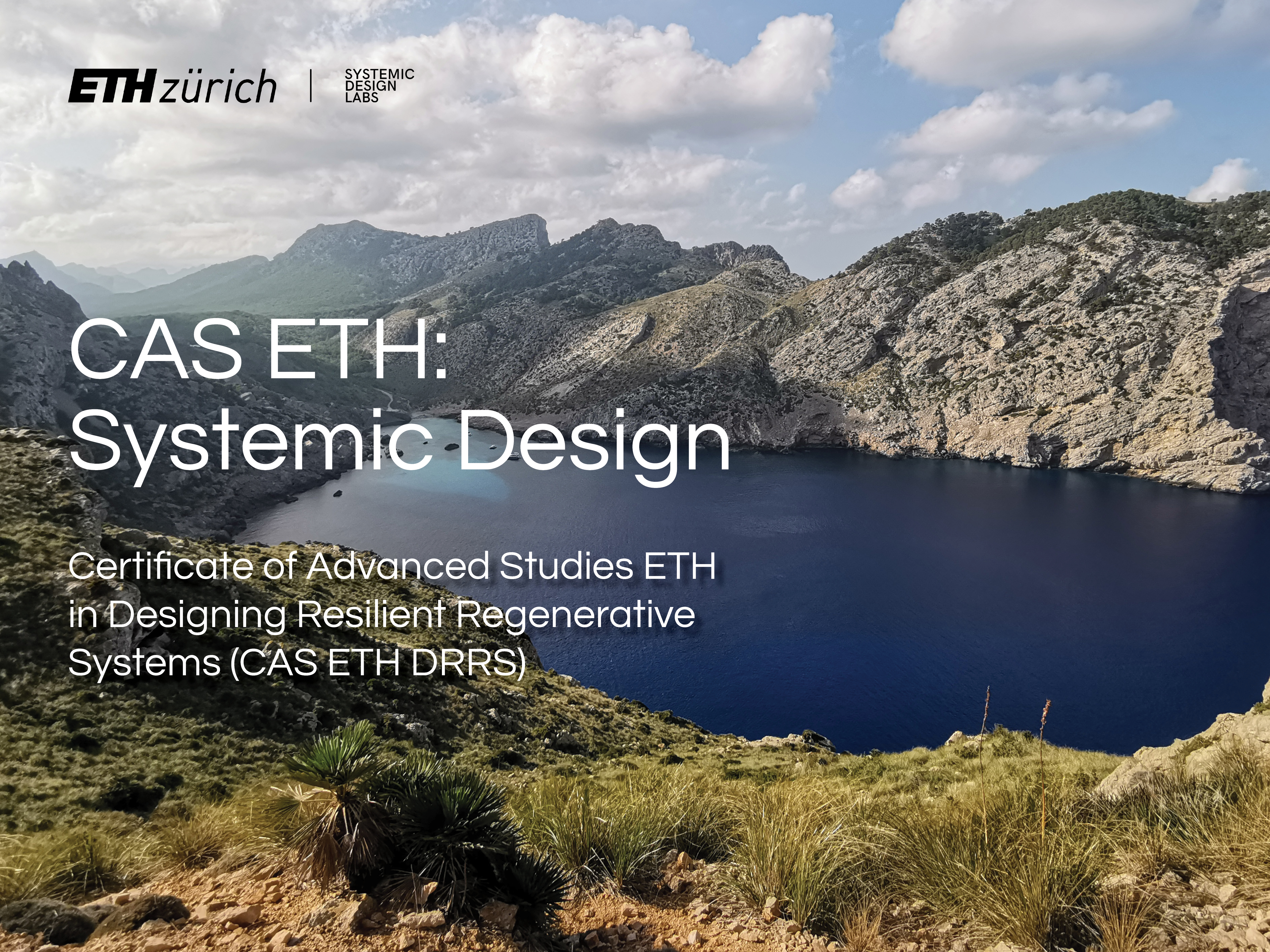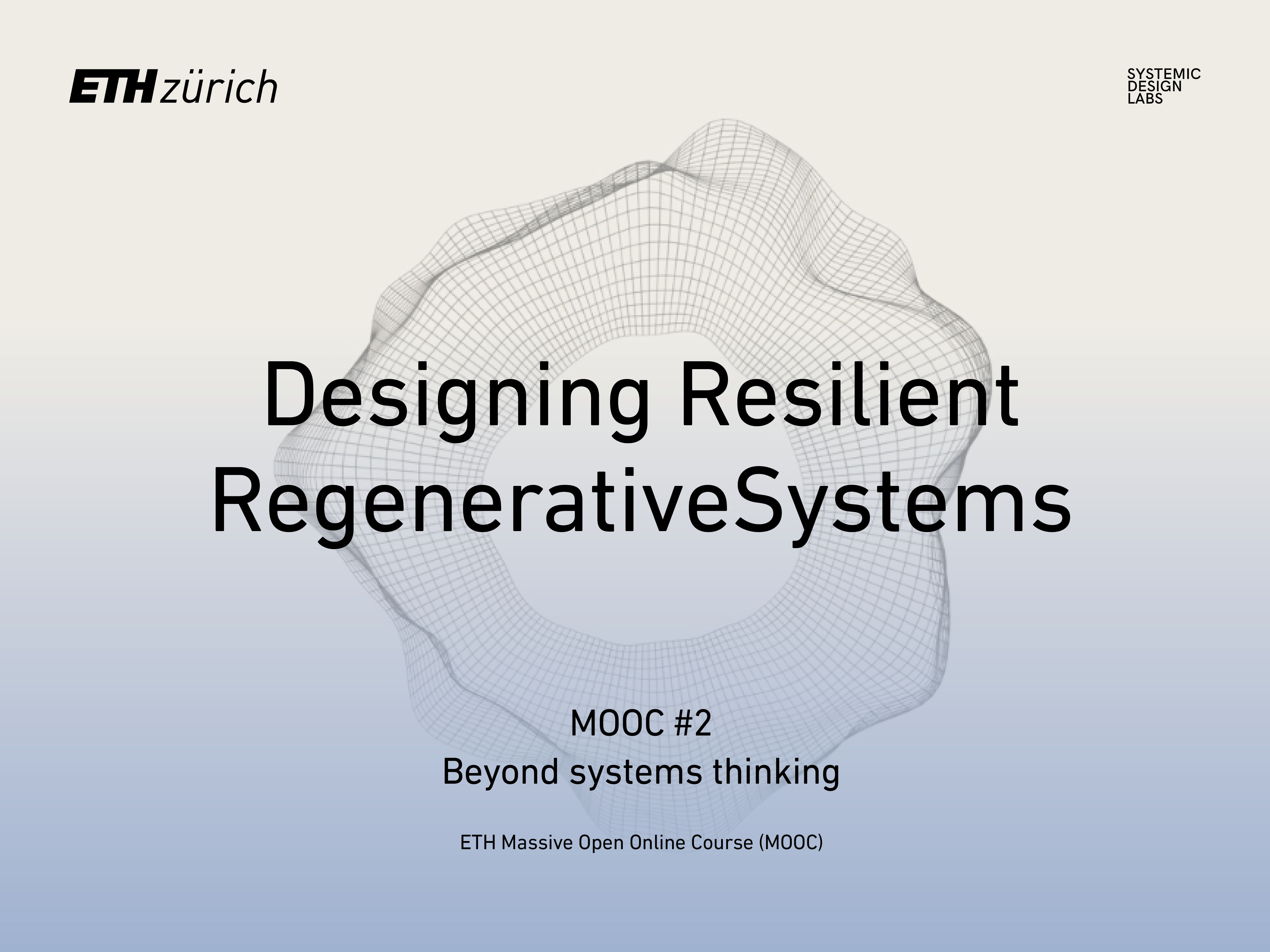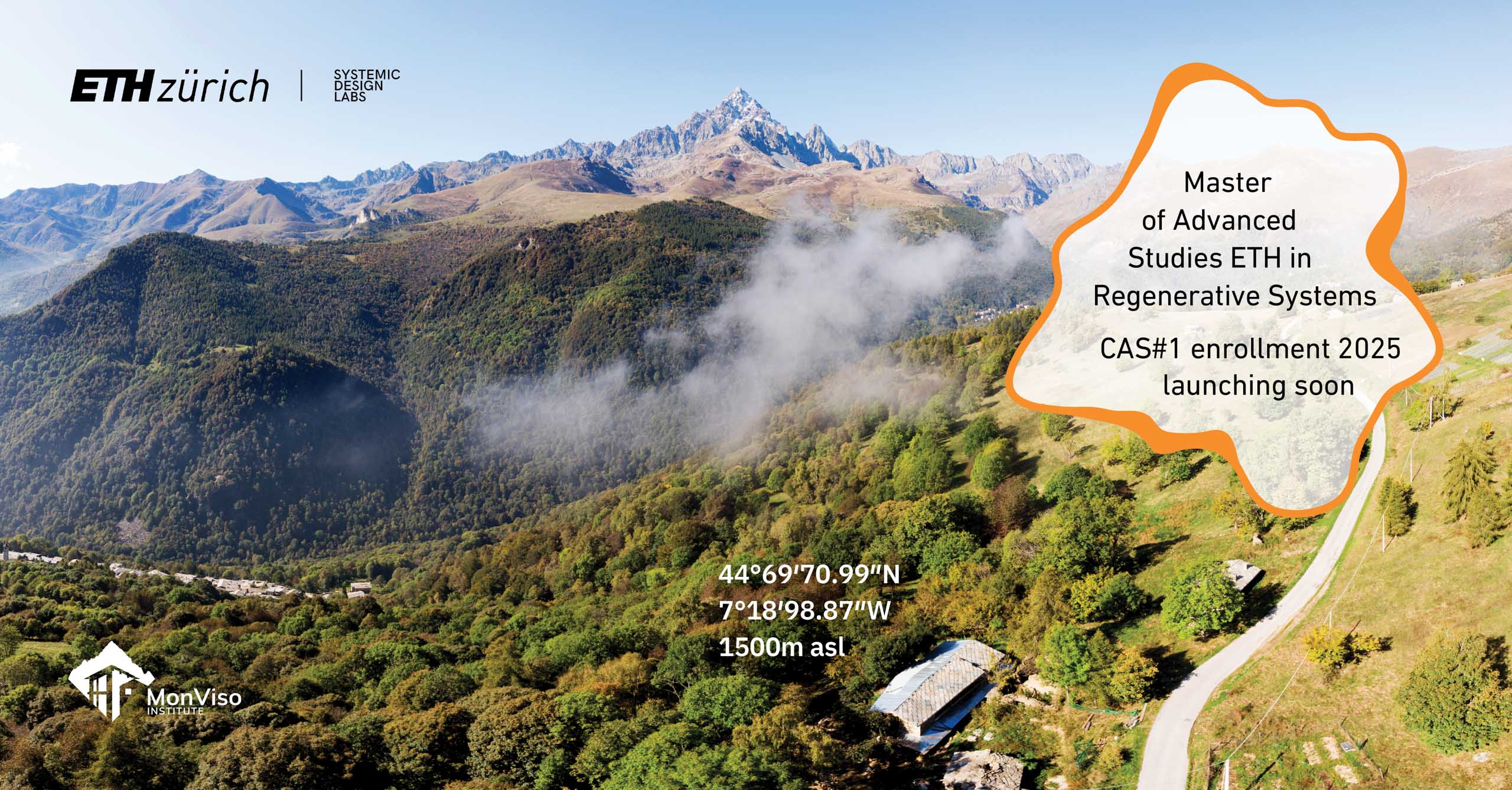Phd Summer School “Designing for Resilience: RE:GENERATE Alpine-urban circularity”
An experiential educational co-creation hybridizing science, design, social outdoor joy, and local people action.
What: ETH-EPFL PhD Summer School When: June 2021. Instructors: Tobias Luthe (ETH), Romano Wyss (EPFL), PhD students of ETH and EPFL as organizers; many further professors, policy makers, practitioners
Organized by ETH Zurich, EPFL Lausanne, MonViso Institute. Partnering with The Oslo School of Architecture and Design, TU Delft, and Politecnico Torino.
This PhD school prototyped a new hybrid format as part of the future of higher education: a physical onsite core group, small and rich, developing place-based content with reasonable travel effort; accompanied and embedded in a virtual setting to allow global participation with a low carbon footprint and rich cross-fertilization.
Summary of Idea and Objectives
Urban and alpine areas around the globe are socio-economically connected, through the exchange of goods, through tourism, through various up- and downstream cycles -we refer to alpine-urban circularity. Many mountain livelihoods are dependent on the flow of urban populations seeking refuge in nature. Increasing urban heat has driven city dwellers to cooler temperatures at higher elevations. With urban populations more economically inclined to travel, they contribute to a higher carbon footprint, which leads to increased pollution, traffic and overtourism. This urban-alpine migration has been dramatically accelerated due to COVID19, as many city dwellers sought escape from both the disease and the lock-down restrictions. The increased urban demand for accessibility to nature and the connected thrive for limits to tourism in alpine communities call for the urgent challenge of cultivating new alpine-urban solidarity. Radical transformative change and multilateral cooperation across scales are critical to building resilience to interrelated global crises through regenerative local and regional practices.
What makes a mountain community and its livelihoods resilient, given the current social, economic and ecological pressures? What makes it worth living in a rural mountain community? What are community regeneration strategies in remote geographies, like mountains? How does “more nature” relate with compassion for nature, systems thinking, and acting? And how do urban and rural/alpine places interact? How does this change our awareness as visitor/tourist, and as a local? What can we learn for re-designing how we live back in the urban, in cities?
During this PhD summer school in the Italian Alps with its virtual global reach, we will discover and design approaches to these questions, merging science, design, and local practice in and from a wonderful, wild, dynamic, mountain outdoor environment – stimulating local physical action as well wherever you (virtually) participate from. The idea is to engage in a rich local “real” setting with a smaller core group of people, while carrying these experiences out into the world by virtual means, nudging local physical action and allowing basically anyone to participate, and even more so feedback some of the remote simultaneous experiences from virtual participants back to the main onsite program.
Content
By employing Tools for Change (TfC) and by planting seeds of systemic innovation at the interface between science, design and practice, this summer school engages with a mountain community in its resilience re-organization and new growth phase, based on three conceptual pillars:
- Mindful immersion in the local context
Arriving to another place, home of locals. Connecting and understanding. Harvesting of place-based knowledge on mountain cultures, economies, landscapes, resilience and alpine-urban solidarity (socio-technical-ecological systems). Both onsite in Ostana, and for virtual participants in their respective location.
- Co-creation of common visions
Exploration and definition of what ‘resilient’ and ‘regenerative’ and ‘solidarity’ mean, based on local identity and related with globalization, both for the onsite location, and in exchange with virtually connected locations.
- Co-designing Tools for Change and local people action for regional regeneration
Identification of locally functioning and generalizable TfC and seeds of systemic innovation, that stand for Ostana region, and that may hold for global locations.
Theme:
Mountain regions face multiple challenges, such as climate change, depopulation, political neglect and economic crises. At the same time, they offer hotspots of biodiversity, water reservoirs for downstream life, a home to local people, and valuable complementary spaces for urban areas in terms of tourism spaces and retreats. Mountain communities are “by nature” trained to adapt and innovate, to maintain resilience. All of this is being amplified through Covid-19, direct and indirect. Yet alpine and urban places are closely connected by various types of flows, be it matter, energy, water, money, or people. Such interdependencies with systemic feedback and side effects we refer to as circularity.
In order to exploit their potential as living space for the local population as well as complementary spaces for city dwellers, mountain regions are confronted with difficult decisions: How can mountain regions build resilience against undesired types of change, while retaining their key cultural and ecological characteristics? How can the exchange between urban areas and mountain communities be developed in a way that benefits both sides – as kind of “social circularity – solidarity”? And what can mountain life of the future look like, both in terms of form and function? A safe retreat space in times of crises? A new “Alpine urbanism”? A state and place of mind, of compassion building, that thrives back to the urban?
These are truly complex questions which require a systemic approach by design. Systemic design is an emerging field between systems science and design, useful to understand and shape inter- and transdisciplinary transition processes. Scientists and Designers, Architects, Engineers and Planners need to jointly interact with local people, policy makers, and practitioners to find creative and attractive solutions to complex problems. The interdisciplinary PhD Summer School “Designing for Resilience: RE:GENERATE alpine-urban circularity” will address this need.
Objectives:
In this summer school you will immerse in interdisciplinary groups together with local inhabitants and global participants to strengthen local identity and rebuild resilient mountain communities within a regenerative, circular economy. To tackle such complex problems, you will learn methods of systemic design thinking and doing, combining systemic design approaches with scientific and practical methods from your own background. You will explore and apply Tools for Change and plant Seeds of Systemic Innovation.
Lecturers and tutors
The team of lecturers and tutors will participate and be present partly virtual, partly onsite, not all together, but in healthy chunks of time.
Virtual team:
Daniel Christian Wahl, PhD, Mallorca. Worldview educator; regeneration weaver in the Mediterranean; sustainability consultant; author of “Designing Regenerative Cultures“.
Julia Watson, New York, Harvard University. Design critic in urban planning and design; TED speaker and author of “Lo-TEK, Design by Radical Indigenism“. (tbc)
Eric L. Berlow, PhD, California. Social impact data scientist, TED senior fellow, head of Vibrant Data Labs and developer of network explorer software Openmappr, owner of the Swall Institute in the High Sierra desert. (tbc)
Adrienne Grêt-Regamey, PhD, Professor at ETH Zurich. Director of the Chair of Planning Landscape and Urban Systems (PLUS) and steering committee of the ETH Future Cities Lab. (tbc)
Birger Sevaldson, PhD. Norway. Professor for Systems Oriented Design at The Oslo School of Architecture and Design.
Ingrid Halland, PhD, Norway. Assoc. Professor at The Oslo School of Architecture and Design. Architecture and design historian. Art writer.
Philippe Vandenbroeck, Netherlands. Co-founder of ShiftN, Creating Clarity in Complexity. Author, photoprapher, mountain sports enthusiast. (tbc)
Mieke van der Bijl-Brouwer, PhD, Netherlands. Assoc. Professor at Faculty of Industrial Design Engineering, TU Delft. (tbc)
Lydia Pedoth, Researcher in community resilience, EURAC Bozen. Consultant, United Nations University, Global Mountain Safeguard Research (GLOMOS). (tbc)
Ross Harding, Australia. Sustainable city innovator. Founder of Finding Infinity and off-the-grid party thrower. (tbc)
Onsite team:
Tobias Luthe, PhD, Assoc. Professor at The Oslo School of Architecture and Design, and Head of ETH Zurich Systemic Design Labs. Co-founder of MonViso Institute and Grown lab.
Catherine De Wolf, PhD, Assist. Professor at ETH Zurich. Circular Engineering for Architecture.
Romano Wyss, PhD, senior scientist at EPFL Lausanne and scientific consultant. Energy resilience, social networks, mountain tourism systems.
Silvia Barbero, PhD. Assoc. Professor in Systemic Design with a focus on circular regional economies at Department of Architecture and Design, Politecnico di Torino. Chair of the Systemic Design Association.
Andrea Bocco, PhD, Professor and Head of Department of Regional and Urban Studies and Planning, Politecnico di Torino. Author of the book “Vegetarian Architecture” (tbc)
Pier Paolo Peruccio, PhD. Assoc. Professor in Systemic Design and Industrial Design History at Politecnico di Torino. Director of the SYDERE center (Systemic Design Research and Education) in Lyon and Torino. World Design Organization board member.
Mirjam Luthe, certified teacher in Mindful Self-Compassion (MSC), Mindfulness-Based Stress Reduction (MBSR), and Mark Coleman’s “Awake in the Wild” year-long training in contemplative nature practice.
Justyna Swat, Design tutor at ENSCi les Ateliers School of Industrial Design, Paris. Visiting lecturer at Royal College of Art, London. Founder of 1983f.com.
Nicolas Salliou, PhD, ETH Zurich. Participatory modeler and serious game developer.
Benjamin Marias. First vice mayor of Annecy, France. Co-founder of AIR coop.
Matteo Arietti & Andrea Bulloni, Torino/Milano. Architects, winners of the competition ‘Europan Europe’.
Marion Real, PhD. Systemic Designer, Fab Lab Bcn/ IAAC Barcelona. Onsite Facilitator for Distributed Ecosystems at this summer school.
AND
Silvia Rovere, Mayor of Ostana
Enrico Crespo, Valle dell’Eco. Local (knowledge) builder in Ostana
The supporting community of Ostana
Language
English with some local inclusive Italian (full translation)
Hybrid format
Onsite – MonViso Institute, Ostana (Italy)
& Virtual-global
Learning context and methods:
In the early 1900s, up to 1200 people lived in the Occitan community in summer, mainly from mountain agriculture and livestock. By 1980, due to interrelated economic and demographic reasons, only 5 people officially remained. Today, Ostana is regenerating, based on a more diverse, flexible, circular economy. To better cope with the complexity of the sustainability challenges at stake, you will study and support this regeneration with a systemic design perspective. You will explore the interconnections between the technical, social and ecological elements of the system, and proactively design tools that address the needs of the community. To do so, you will integrate established technical planning and engineering skill-sets with ecological life cycle design and social science methods. You will prototype with local people, take part in design-doing workshops, bio-mimetic outdoor learning and sharing activities. Special attention will be given to the interaction with local practitioners in creating new, regenerative solutions, to different types of knowledge (science, local traditions, experience,…), to mindful innovation and compassion.
As for the virtual participants, we invite you to propose and engage within a comparative alpine-urban or urban-rural place near where you live. Ideally, you sign up with at least one colleague, another student, to form a kind of small group, a local cohort or learning tandem, to follow the onsite summer school on your site, and engage in your region with certain tutored tasks that you can feed back into the joint connection times and live virtual meetings accompanied by the Ostana group.
Outputs:
In a low-threshold and inclusive research phase you will collect qualitative and quantitative data. This data will be obtained through the analysis of social networks, drone scanning, mobility experiments or circularity master planning, spontaneous encounters with local people, discussions, joint hands-on working with locals, etc. in order to understand the identity and challenges of the area. You will then develop an adequate communication of the identified challenges and possible solution paths to revive the alpine community and circularities with the urban (“Tools for Change”, “seeds of systemic innovation”). For example, this may include short films, systems “giga” maps or technical demonstrations. Finally, you will present and discuss the findings and solutions paths at the local Regenerative Design Talk (RDT) series, open to the local community and the public. In general, we encourage you to contribute with your expertise and use methods from your background to make this summer school a valuable broadening of horizons. The RDT will then be spiced up with global virtual participants and made accessible online.
Experience:
As systems thinkers, scientists, designers and practitioners, as tourists and locals, we embrace the complexity of human-environment relations. The mission of this PhD summer school is to provide for such systemic interaction and emerging connections through interwoven periods of work and play, of collective discourse and individual space. We host an academic environment that provides ample space to understand and experience the local context, enjoying outdoor activities within the beauty of the Italian Alps, while inviting and integrating voices from global participants and places. Social dining, joint barbecuing at the open fire, drone photography, hiking, rock climbing, forms of connecting with the inner and outer nature, and many other activities will allow you to interact with the locals and the unique nature.
As for virtual participants, we create a daily routine to integrate you into the onsite week, with mindful movement morning practices, live onsite-virtual joint topical and reflective infusions twice a day in the late morning and the early evening. You will be undertaking your own local design exploration and cross-feed this back into the onsite work, including nudged physical outdoor time where ever you dial in from. To create for a richer learning experience, we encourage virtual participants to sign up as small “cohort” group with at least two or more students.
Expect learning experiences beyond your mental and physical comfort zones, which is where innovation and systems change thrive.

